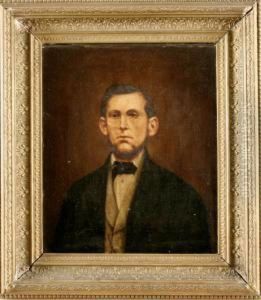N. Von Kleist Paintings
Heinrich von Kleist was a German poet, dramatist, novelist, and short story writer. Born on October 18, 1777, in Frankfurt (Oder), he came from a Prussian family with a strong military background. His full name was Bernd Heinrich Wilhelm von Kleist. Despite this heritage, Kleist would become better known for his contributions to literature than any military accomplishments.
Kleist's life was marked by a constant struggle with his education, career choices, and personal relationships. He initially pursued a military career, following the footsteps of his forebears, but left the army in 1799 to study philosophy, physics, mathematics, and political science at the Viadrina University in Frankfurt (Oder). However, he did not find satisfaction in academic life and left university without a degree.
Kleist's literary career began in earnest around 1802. His restless spirit led him to travel extensively throughout Germany, France, and Switzerland. In 1805, he published his first play, 'Die Familie Schroffenstein,' but it received little attention. His subsequent works, including the play 'Käthchen von Heilbronn' (1808), the novella 'Michael Kohlhaas' (from which E.L. Doctorow later drew inspiration for his work 'Ragtime'), and the drama 'Penthesilea' (1808), explored themes of existential crisis, conflict between personal values and society, and the search for justice. These works were characterized by their intensity, psychological depth, and often, a tragic sense of fate.
Kleist's most famous play, 'Der zerbrochene Krug' (The Broken Jug), was first performed in 1808, under the direction of Johann Wolfgang von Goethe, but it was not well-received initially. However, it later gained recognition and is considered a masterpiece of German literature today.
Plagued by financial difficulties and unable to achieve significant literary success during his lifetime, Kleist struggled with depression. His personal life was equally troubled; his engagement to Wilhelmine von Zenge ended, and his later romantic relationships were similarly fraught. His friendships with contemporaries such as Clemens Brentano and Achim von Arnim were important for his development as a writer, but they could not alleviate his despair.
Kleist's life came to a tragic and abrupt end when he committed suicide on November 21, 1811, at the age of 34, alongside Henriette Vogel, a close female friend who was terminally ill. They died together on the shores of the Kleiner Wannsee near Potsdam. After his death, Kleist's work began to receive the recognition it had lacked during his life, and he is now considered one of the most important figures in German literature. His works have influenced numerous writers and have been adapted for stage and screen multiple times.
